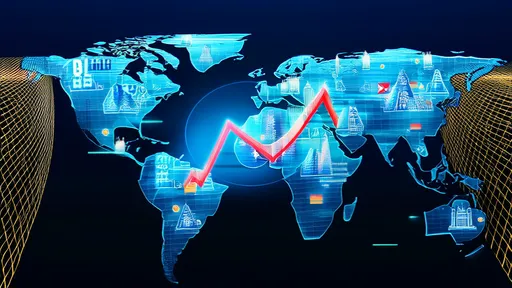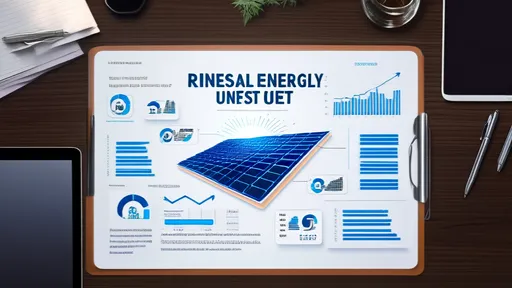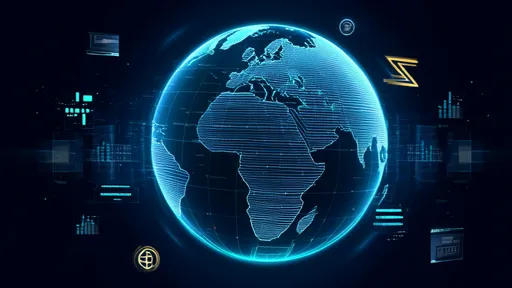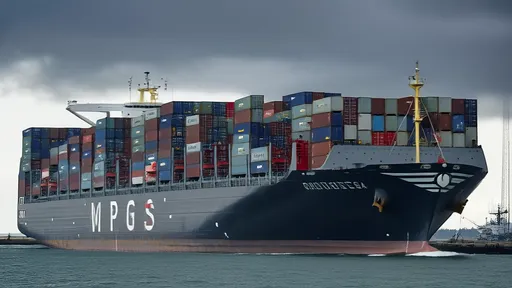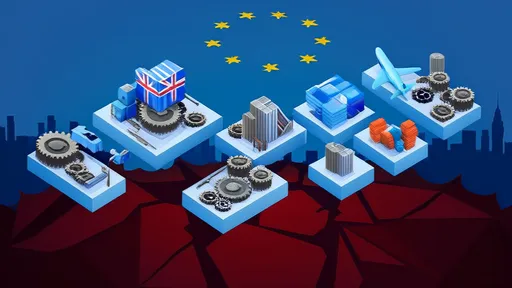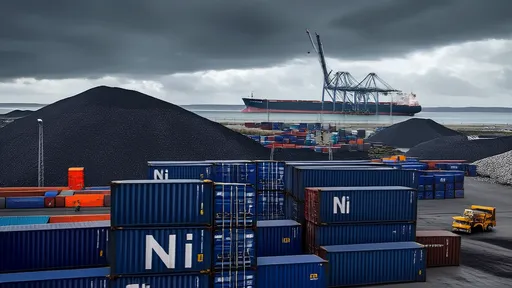The World Trade Organization (WTO) has issued a stark warning about the growing fragmentation of global trade, cautioning that a breakdown in international cooperation could slash global GDP by up to 5%. The alarm comes amid rising geopolitical tensions, trade barriers, and a shift toward protectionist policies that threaten to unravel decades of economic integration.
In its latest report, the WTO highlighted how the splintering of trade alliances and the erosion of multilateral frameworks could have far-reaching consequences. "The risks of decoupling are no longer theoretical," said Director-General Ngozi Okonjo-Iweala. "We are seeing tangible signs of trade flows being redirected along geopolitical lines, and the economic costs could be severe."
The Fragmentation Threat
Global trade fragmentation refers to the division of the world economy into competing blocs, often driven by political rather than purely economic considerations. This trend has accelerated in recent years due to trade wars, sanctions, and the reshoring of supply chains. The WTO estimates that if this continues, the long-term losses could amount to trillions of dollars in foregone economic output.
One of the most visible examples is the growing divide between the U.S. and China, where tariffs and export controls have disrupted traditional trade patterns. Similarly, the war in Ukraine has further strained global supply chains, pushing nations to prioritize security over efficiency. "When countries turn inward, everyone loses," Okonjo-Iweala emphasized. "The gains from trade are not zero-sum—they are shared."
Historical Parallels and Modern Risks
Economists have drawn parallels between today’s trends and the protectionist spiral of the 1930s, which deepened the Great Depression. While the current situation is not yet as severe, the WTO warns that without corrective action, the world could face a similar downward cycle. "Trade barriers beget more trade barriers," the report notes. "Once distrust takes root, it becomes difficult to reverse."
Developing nations are particularly vulnerable. Many rely on open markets to export goods and attract investment. A fragmented trade environment could leave them stranded, unable to access the technologies and capital needed for growth. "The global trading system has lifted millions out of poverty," said Okonjo-Iweala. "We cannot afford to backtrack now."
Pathways to Mitigation
The WTO is urging nations to recommit to dialogue and dispute resolution mechanisms within the multilateral framework. While bilateral and regional trade deals can complement global trade, they should not replace it. "We need more bridges, not walls," the Director-General stated.
Some experts argue that digital trade and green energy partnerships could offer new avenues for cooperation, even in a politically divided world. Others stress the importance of reforming the WTO itself to better address contemporary challenges like subsidies and intellectual property disputes.
Yet, the window for action is narrowing. As geopolitical rivalries intensify, the economic stakes grow higher. The WTO’s message is clear: without a course correction, the world may soon face a costly and avoidable decline in prosperity.
The Human Cost
Beyond GDP figures, trade fragmentation risks exacerbating inequality and stifling innovation. When supply chains are disrupted, prices rise, and consumers bear the burden. Workers in export-oriented industries face job losses, while businesses struggle with higher input costs. "Trade is not just about numbers—it’s about livelihoods," Okonjo-Iweala reminded policymakers.
The WTO’s warning serves as both a caution and a call to action. In an interconnected world, no nation can thrive in isolation. The challenge now is to balance national interests with the collective benefits of an open, rules-based trading system—before it’s too late.
The World Trade Organization (WTO) has issued a stark warning about the growing fragmentation of global trade, cautioning that a breakdown in international cooperation could slash global GDP by up to 5%. The alarm comes amid rising geopolitical tensions, trade barriers, and a shift toward protectionist policies that threaten to unravel decades of economic integration.
The global food price index has shown a steady decline over the past several months, offering temporary relief to consumers worldwide. However, this positive trend masks deeper structural vulnerabilities in the world's food systems that continue to threaten long-term food security. While lower prices at grocery stores and markets provide welcome breathing room for household budgets, agricultural experts warn that climate change remains an existential threat to stable food production.
The once-explosive growth of cross-border e-commerce is showing signs of cooling, prompting major platforms to shift their focus toward emerging markets, particularly Southeast Asia. After years of double-digit expansion, global online retail sales are facing headwinds from economic uncertainty, supply chain disruptions, and shifting consumer behaviors. This slowdown has forced industry players to rethink their strategies, with many turning their attention to the relatively untapped potential of Southeast Asian nations.
The race for quantum supremacy has entered a new phase as tech giants IBM and Google accelerate their efforts to commercialize quantum computing. What was once a theoretical pursuit confined to research labs is now a high-stakes battle for market dominance, with both companies vying to establish themselves as the leader in this transformative technology. The competition is heating up as breakthroughs occur at an unprecedented pace, leaving investors, governments, and industries scrambling to understand the implications.
The global housing market, once a bastion of stability and growth, is now facing one of its most significant downturns in recent memory. Across Europe and North America, property prices have plummeted by an average of 15%, sending shockwaves through economies and leaving homeowners, investors, and policymakers scrambling to respond. This sharp decline marks the bursting of what many analysts had long warned was an unsustainable real estate bubble, inflated by years of cheap credit, speculative buying, and artificially low interest rates.
The global luxury market is experiencing an unexpected chill, and nowhere is this shift more pronounced than in China. As international luxury houses report softening demand from their most crucial demographic, a quiet revolution is taking place among Chinese consumers who are increasingly turning to homegrown high-end brands. This tectonic shift in consumer behavior is reshaping the luxury landscape in ways that few industry analysts predicted just five years ago.
The global semiconductor shortage that has plagued industries from automotive to consumer electronics since 2020 is finally showing signs of easing. However, beneath this broader recovery lies a paradoxical imbalance: while advanced chip production has largely stabilized, mature-node semiconductors remain stubbornly constrained. This divergence reveals fundamental shifts in the semiconductor ecosystem that may reshape supply chains for years to come.
The global energy landscape is undergoing a seismic shift as investments in renewable energy have surpassed those in fossil fuels for the first time in history. This milestone marks a turning point in the world’s transition toward cleaner energy sources, with solar power emerging as the dominant force driving this growth. The trend reflects not only changing market dynamics but also a broader recognition of the urgent need to combat climate change.
The biotech sector is witnessing an unprecedented surge in investor interest, with gene-editing companies leading the charge. Over the past year, venture capital firms and institutional investors have poured record-breaking sums into startups specializing in CRISPR and other gene-editing technologies. The momentum shows no signs of slowing down, as breakthroughs in therapeutic applications and agricultural innovations continue to capture both scientific and financial attention.
The global artificial intelligence (AI) investment landscape is undergoing a seismic shift, with projections indicating that total spending on AI technologies will surpass $1.5 trillion by 2025. Among the key players driving this unprecedented growth, China stands out as a dominant force, accounting for an estimated 35% of the worldwide AI investment. This surge reflects not only the rapid adoption of AI across industries but also the strategic prioritization of AI development by governments and corporations alike.
The global shipping industry is facing unprecedented turbulence as freight rates skyrocket and the Red Sea crisis exacerbates supply chain disruptions. What began as regional geopolitical tensions has spiraled into a worldwide logistical nightmare, squeezing businesses already struggling with post-pandemic recovery. The ripple effects are being felt across industries, from automotive manufacturers waiting on critical components to retailers staring at half-empty shelves during peak shopping seasons.
The UK's post-Brexit economic landscape continues to face significant headwinds, with recent data revealing a record-high trade deficit and persistent contraction in the manufacturing sector. These developments have reignited debates about the long-term consequences of leaving the European Union, as British businesses struggle to adapt to new trade barriers and supply chain disruptions.
The African Continental Free Trade Area (AfCFTA) has officially commenced operations, marking a historic milestone in the continent's economic integration. With the ambitious goal of doubling intra-African trade by 2035, the initiative is poised to reshape the economic landscape of Africa, fostering greater collaboration among its 54 member states. The AfCFTA represents the world's largest free trade area by the number of participating countries, covering a market of over 1.3 billion people and a combined GDP of approximately $3.4 trillion.
The Philippines and the United States have recently inked a pivotal agreement aimed at strengthening cooperation in the critical minerals sector, a move widely interpreted as an effort to reduce reliance on China. This strategic partnership underscores the growing geopolitical significance of securing supply chains for minerals essential to modern technology, renewable energy, and defense systems. As tensions between Washington and Beijing continue to escalate, the deal signals a broader shift in global trade dynamics, with nations increasingly seeking alternatives to Chinese dominance in the critical minerals market.
The global electric vehicle (EV) industry is facing a significant cost surge as Indonesia, the world’s largest nickel producer, enforces a strict ban on nickel ore exports. The policy, initially introduced in 2020 to promote domestic processing, has now begun to exert intense pressure on battery manufacturers scrambling to secure alternative sources. With nickel being a critical component in lithium-ion batteries, the restriction has disrupted supply chains and driven up production costs for EV makers worldwide.
